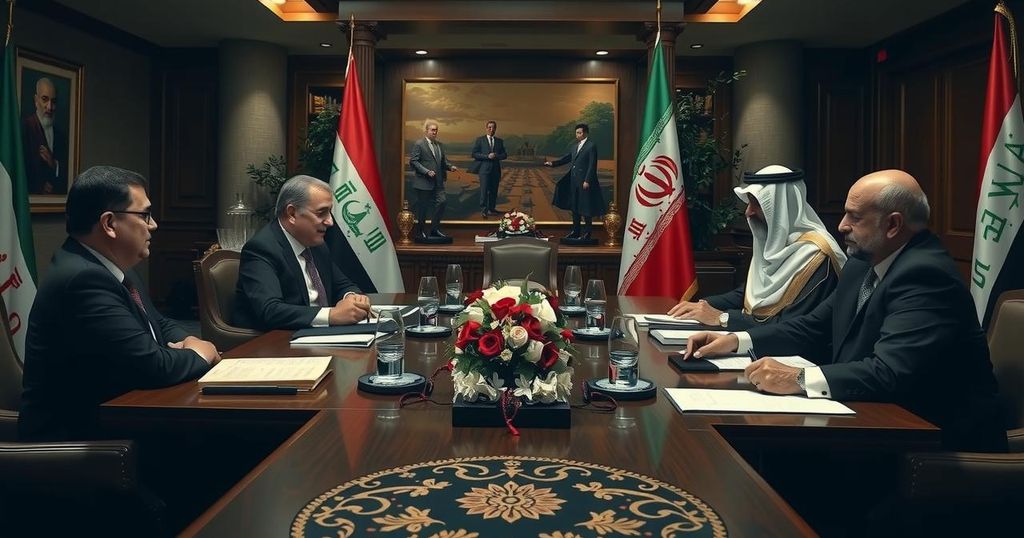Syrian Regime Strengthens Regional Alliances Amidst Opposition Advances

The Syrian regime, facing advances from opposition groups, has reached out for support from Iraq, Iran, and the UAE as it loses key cities. Dialogue with these nations emphasizes commitment against terrorism and regional stability. This engagement hints at a broader geopolitical shift and the UAE’s renewed solidarity with Syria amid the ongoing civil conflict, aiming to restore Assad’s influence and combat the rise of opposition forces.
The Syrian regime, led by President Bashar al-Assad, is actively seeking regional support amidst significant military losses, particularly the recent fall of Aleppo to opposition forces. With control over western Syria and facing threats from various factions in the north and east—territories largely influenced by Turkey and US-backed groups—the regime has strengthened diplomatic ties with key allies, including Iraq, Iran, and the United Arab Emirates (UAE).
Following the escalation of conflict in Aleppo, President Assad has engaged in discussions with leaders from these nations to reaffirm partnerships aimed at countering terrorist activities and maintaining Syria’s territorial integrity. On December 1, a conversation between Assad and Iraqi Prime Minister Mohammed Shia’ Al Sudani highlighted the commitment of Iraq to support Syria’s sovereignty amid concerns over terrorist threats ensuing from regional instability.
Assad also emphasized Syria’s resilience to Sheikh Mohammed bin Zayed Al Nahyan of the UAE, who expressed solidarity and support for Syria’s struggle against terrorism. The exchange underscored the UAE’s shift towards re-engagement with the Syrian regime, illustrating a broader trend where Gulf states are reconsidering their relationships with Damascus in light of the ongoing civil conflict.
Re-establishing ties could signal a collective understanding that the chaos of war poses a greater threat than the Assad regime itself. The UAE has previously conveyed its commitment to assist in achieving a peaceful resolution to the crisis that aligns with the aspirations of the Syrian populace for stability and development while preserving national unity.
In summary, as regional dynamics shift, Assad’s outreach evidences an urgent need for support to counteract the gains made by opposition forces, ensuring both military resilience and diplomatic acknowledgement in a fragmented landscape such as Syria.
This analysis focuses on the current geopolitical maneuvers by the Syrian regime as it confronts intensified opposition in northern Syria. Following significant territorial losses, including the recent capture of Aleppo, Assad’s government is reaching out to traditional allies to consolidate support against its adversaries. The regime’s attempts to restore relations with Gulf states like the UAE highlight a potential shift in regional politics as these countries reconsider their stances on the Syrian conflict.
In conclusion, the Syrian regime’s diplomatic outreach reflects its precarious situation amidst escalating opposition threats. By re-engaging with Iraq, Iran, and the UAE, Assad aims to reinforce both military and political stability, underscoring the complexities of regional alliances. The evolving stance of Gulf states suggests a pragmatic shift towards supporting Syria, which may reshape the future trajectory of the conflict in favor of the Assad regime. However, the challenges it faces remain significant as control over key territories dwindles.
Original Source: www.jpost.com








